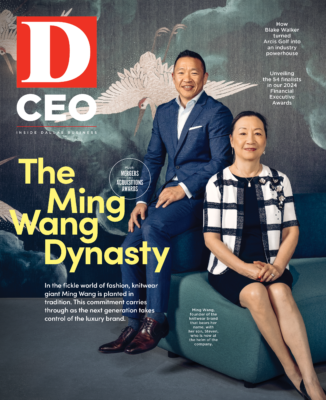The Lusitania was the fastest ship in the world in 1915, having crossed the Atlantic more than 200 times at record speed. For a while, it was also the largest passenger ship on the seas, transporting nearly 2,200 passengers and 850 crew between the U.K. and the U.S. Believed to be unsinkable, a German U-boat took down the vessel with one torpedo during World War I, catalyzing America’s entrance into the conflict. When the ship went down, nearly 1,200 passengers and crew died.
The outsized loss of life was due in part to a lack of training and independence. Passengers and crew members assumed those in charge would protect them. However, the captain and other leaders did not prepare those on board for an emergency, and the results were tragic.
Although a CFO’s decisions are rarely as consequential as those made at sea on a WWI ocean liner, the same skills and leadership qualities are needed to achieve success. After speaking with several financial executives about the choppy economic waters of 2023 and how they steered their organizations through them, problem-solving and readying others for leadership emerged as essential strategies. Investing in the development of teammates is a long-term move that may be time-consuming on the front end but pays dividends down the line—just as life jacket training could have saved the lives of hundreds of Lusitania passengers.
Here’s a look at how some winners in D CEO’s 2024 Financial Executives Awards ensure their teams are prepared. To view the list of winners, click here.
Be Ready to Change Course
Inflation and ensuing high interest rates in 2023 pushed typical capital providers into conservation mode; investors moved to protect their portfolios, and corporations focused on profitability versus the risks of growth. For service providers, these conditions created challenges in landing new clients or renewing existing contracts, but resilient financial executives navigated the troubled waters.
“I have always believed in the importance of managing for the uncertain,” says Pascal Desroches, CFO at AT&T. “It is important to have several contingency plans and ensure you are in a position to deal with inflation and the unknowns that come with that.” For an essential business such as AT&T, Desroches isn’t too fazed by the immediate conditions and is focused on the long term, continuing to invest in employees and infrastructure even in hard times. The networks AT&T builds and invests in today will be needed several years in the future, so maintaining a company’s north star is essential to continued profitability.
But not every business can head straight into the economy’s rogue waves and be unscathed. Smaller firms without hefty capital reserves may have to avoid the proverbial U-boats, change course, and find other opportunities.
Such was the case for Dallas-based Davis Davis & Harmon CEO Chanel Christoff Davis, who pivoted during the pandemic to take on less traditional roles in tech. What was a sales tax consultancy took on an I.T. project to save the company. More recently, it ventured into oil and gas. Even though her company didn’t have much experience in the field, Davis built a team fit for the job. “It was unexpected, but we had to be scrappy,” she says. “Oil and gas keeps us on our toes, but we’re excited about our business.”
Leaders at o9 Solutions found that 2023 forced them to look inward. The maker of software that helps other firms predict demand for its products, o9 used its platform to measure its own prospects and plan parts of its business. What the Dallas company found was that the trends that had helped the company grow 1,000 percent in the last five years would continue in 2023.
Armed with data, o9 doubled down on client satisfaction strategies. “Eating our own dog food paid off,” says CFO Anand Govind. “Extreme financial literacy was important. At our scale, there was no way we could execute without it.
From Crewmates to Captains
An essential component of preparing for success during tough times is empowering leaders at all levels of the company to be problem-solvers and think like stakeholders. At o9, Govind says he strives to achieve this by making sure future leaders are invested in the company’s success and developing a culture where people can bring their entire selves to work and where their passions will be supported.
The firm uses an initiative-based management style that dissolves hierarchy and allows employees at different levels to lead various projects. “We have a highly entrepreneurial culture,” Govind says. I could lead one initiative, support another as a contributor, and report to that person. That ethos prevails in our culture.”
Financial executives who encourage their employees to think like leaders reap the benefits, especially in tough financial times when creativity becomes even more important.
Davis’ firm is small enough that she often identifies how employees can help by assuming leadership over different projects. She works with new employees to foster unique development strategies. When she identified a quieter employee to take the lead on new software implementation for the company based on her specific experience, the impact was immediate and sizable. “We took a person who may have been overlooked elsewhere and gave her a voice,” Davis says. “She is doing a phenomenal job.”
At a company that is as essential to the American economy as AT&T, Desroches knows he needs to be a coach or captain of the financial ship. He can’t play every position and isn’t on the front lines to solve every problem. He endeavors to eliminate control for control’s sake in the finance department and allow his team to fight the battles before them.
“My goal is to hire good people, allow them to do their thing, give them resources, and eliminate obstacles,” he says. “I want them to think, ‘If this were my company, what would I do? How would I organize it?’ It is important as leaders to employ that mindset.”
Author








